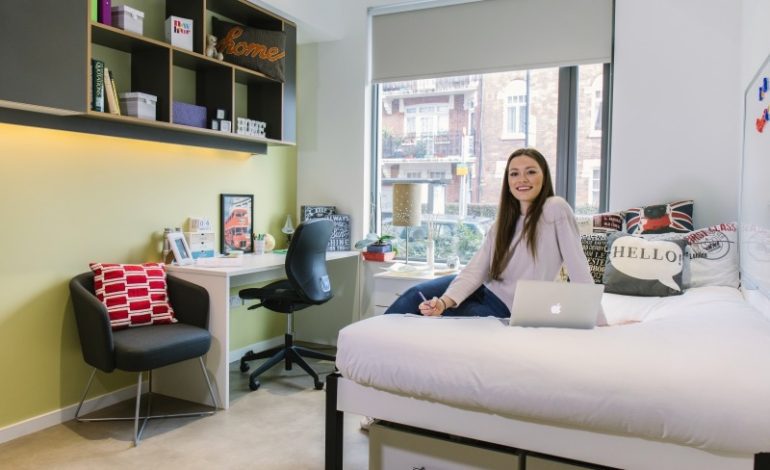International students who are enrolled in an academic program or English Language Program at a US college or university are granted an F1 visa. F1 students must maintain the minimal course load to maintain full-time status. They can stay in the US for up to 60 days after finishing their academic program, unless they have applied for and been granted to stay and work for a period of time under the OPT Program.
F1 students are expected to complete their studies by the expiration date on their I-20 form (Certificate of Eligibility for Non-immigrant Student Status), which is issued by the US college or university to which they have been enrolled and will be attending.
Admission policies varies amongst universities. Your university will inform you of the information required to determine your academic eligibility. Among other things, you must demonstrate to the school that you have enough money to support yourself while studying without having to work, and you may be required to have health insurance to cover any medical expenditures if you require medical care. When the institution determines that your application is complete and that you are academically qualified, they will offer you an I-20 document, which will allow you to apply for your student visa.
Generally, applicants for student visas should apply at the US Embassy or Consulate with jurisdiction over their permanent residence. This is usually your native nation – the country where you live. Although visa applicants may apply at any US consular office overseas, qualifying for the visa outside the place of permanent residence may be more difficult.
Obtaining a visa can be a challenging procedure. If you’ve determined that you need the assistance of an immigration lawyer, consider working with a professional legal firm such as F1 Visa Advisors, Inc. F1 Visa Advisors, founded by an experienced immigration lawyer in the United States, provides students with tailored visa assistance and guidance to help boost their chances of receiving an F1 visa.
Read Also: Can F1 Students Live Off Campus?
Although the process may differ or require additional stages depending on your nation and embassy or consulate, you will need the following items when applying for a student visa:
Application Fee: You will have to pay a non-refundable application fee. This means that if your visa does not get approved, you will not get your money back.
Form DS-160: All applicants will need to complete and submit DS-160, the online application for a non-immigrant visa.
Form DS-157: A DS-157 form for all males aged 16-45.
Valid Passport: A passport valid for travel to the United States and with a validity date at least six months beyond your intended period of stay in the United States. If more than one person is included in the passport, each person desiring a visa must make an application.
Photos: You can upload a digital photo that is:
- In color
- Sized such that the head is between 1 inch and 1 3/8 inches (22 mm and 35 mm) or 50% and 69% of the image’s total height from the bottom of the chin to the top of the head
- Taken within the last 6 months to reflect your current appearance
- Taken in front of a plain white or off-white background
- Taken in full-face view directly facing the camera
- With a neutral facial expression and both eyes open
- Taken in clothing that you normally wear on a daily basis
F1 Visa Interview
To determine whether you are eligible for an F1 student visa, you will need to attend an F1 visa interview. You should bring all relevant paperwork and receipts to the interview, and you should be prepared to answer personal questions about your decision to study in the United States. We will look at some of the most typical F1 Visa interview questions below.
- Why did you choose to study in the US instead of joining the workforce in your home country?
- Why did you choose this school and why is it the best school for you?
- What are your test scores (GRE, GMAT, SAT, TOEFL, IELTS), your GPA, and your overall performance as a student in the past?
- How are you funding the entire duration of your education, including tuition, room and board, transportation, and all other expenses?
- After you graduate, do you plan to return home or will you stay in the United States?
If your application is granted, you may be asked to pay a visa issuance fee. For records, digital fingerprint scans will be collected. Your passport will be taken so that you can obtain your visa, and you will be notified when it is ready for pick-up or delivery.
It is important to remember that visa issuance is not assured. Never make final travel arrangements until your visa has been approved. If your visa application is denied, you will be given an explanation based on the provision of legislation that governs your ineligibility. In some instances, a waiver of ineligibility may be filed.
You can enter the United States as an international student once your F1 visa is accepted. However, once you arrive, you must be aware of your responsibilities as an F1 visa holder. If you do not keep your valid F1 visa status, you will be unable to re-enter the United States and will be ineligible for practical training (OPT or CPT) or on-campus work. Here are some pointers to keep you in good standing during your study abroad experience:
Make your arrival in the United States no more than 30 days before the first day of classes. Contact your international advisor as soon as feasible before the start of your program.
You must continue to be enrolled full-time. Attend class and maintain a passing grade. Inform your international adviser if you are having trouble in your classes. If you are unable to finish your program by the deadline specified on your Form I-20, your international advisor can assist you in requesting a program extension.
Your passport should be valid for at least six months. If necessary, your country’s consulate or embassy can assist you in extending your passport. For identification purposes, bring a copy of your passport as well as your I-94 card.
Off-campus employment is not permitted for F1 visa students. If you qualify, you may be able to find on-campus work or participate in curricular practical training. Consult your international advisor to determine if this is an option for you. If you choose to work illegally, your visa will be canceled and you will be compelled to leave the United States.
Under your F1 visa, you have 60 days after finishing your program to leave the United States. To stay in the United States, you must re-enroll in a higher-level program, transfer to another school to obtain a new I-20 form, or request to modify your visa status. Your international advisor can provide you with more information about your possibilities.


